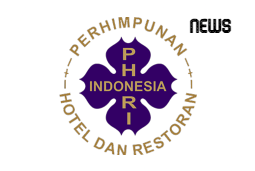West Java Hotel Cuts Labor Hours as Government Austerity Measures Hit Hospitality Sector

Favehotel Pamanukan in Subang, West Java. (Handout) Jakarta. The hospitality sector is feeling the strain of the government’s ongoing austerity campaign, which has sharply curtailed hotel bookings and meeting activities nationwide. One such example is Favehotel Pamanukan, located in Subang Regency, West Java, which has been forced to reduce the working hours of its part-time staff due to a significant decline in bookings from local government agencies. “Previously, they worked around 20 days a month, but since last month, their hours have been cut in half,” said Bintang Adhipradipta, General Manager of Favehotel Pamanukan, on Wednesday. Workers affected include those in the hotel’s restaurant and housekeeping departments. Despite its strategic location near Patimban Port -- recently launched as a major export hub, particularly for the automotive industry -- the hotel has seen a dramatic drop in activity. “We used to host corporate and government events regularly, but those have virtually disappeared since the start of the year,” Bintang said. Even during the usually busy Eid al-Fitr holidays, when all 107 rooms were typically fully booked, the hotel recorded an occupancy rate of only around 30 percent this year, he added. According to the Indonesian Hotel and Restaurant Association (PHRI), the national hotel occupancy rate dropped to around 20 percent last month, a steep decline from 40 to 60 percent during the same period last year. Eid al-Fitr, traditionally one of the peak periods for domestic travel -- alongside the year-end holidays -- has become a bellwether for industry performance. Yet, hotels in cities across Indonesia, from Bogor and Malang on Java Island to Medan in North Sumatra, reported underwhelming occupancy during this year’s Eid. Even popular tourist destinations like Bali and Yogyakarta saw lower-than-usual bookings. During the January-February period, the national occupancy rate stood at 37.77 percent, a slight decline of 0.51 percentage points compared to the same period last year, according to the Central Statistics Agency (BPS). A significant portion of hotel revenue has traditionally come from MICE (meetings, incentives, conventions, and exhibitions) activities, particularly those sponsored by the government. This vital income stream has nearly dried up following President Prabowo Subianto’s announcement of sweeping cost-cutting measures aimed at saving over Rp 300 trillion in government spending. These measures include strict restrictions on non-essential travel, seminars, and meetings by government officials and state agencies. PHRI Chairman Hariyadi Sukamdani acknowledged earlier this month that the hotel industry is heavily reliant on government spending. He noted that 40 percent of hotel revenues nationally -- and up to 70 percent on Java Island -- come from government bookings. He also revealed that two hotels in Bogor had ceased operations ahead of the Eid holiday due to slumping demand. Tags: Keywords:

